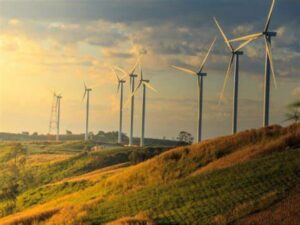Recent research from Boston University highlights China’s unique opportunity to spearhead an energy revolution across Africa. However, this potential hinges on a crucial reversal of nearly two decades of neglect towards green power investments on the continent.
China has emerged as Africa’s foremost bilateral trading partner since the turn of the century, channeling billions of dollars into extensive infrastructure projects. President Xi Jinping‘s commitment three years ago to refrain from constructing new coal-fired power projects abroad underscored China’s pledge to combat climate change by endorsing the development of green and low-carbon energy alternatives. Despite Africa boasting one of the world’s highest potentials for green energy, Chinese lending and investment have thus far offered limited support for the continent’s energy transition. According to findings from Boston University’s Global Development Policy Center and the African Economic Research Consortium, only 2% of China’s $52 billion in energy loans from 2000 to 2022 were allocated to renewables like solar and wind, with over 50% directed towards fossil fuels. The report emphasizes that given prevailing economic challenges and future energy prospects, China could significantly contribute to Africa’s energy access and transition through avenues such as trade, finance, and foreign direct investment (FDI).Chinese development finance institutions have traditionally prioritized investments in commodity extraction and export to China, alongside electrification projects. Notably, Chinese lending often targets sectors linked to oil and mineral production, with numerous hydropower projects, comprising 26% of all hydropower lending by the Export-Import Bank of China (CHEXIM), designed to support metal extraction.
While this approach has yielded export revenues for African economies, the full benefits of renewable energy technologies have yet to be realized by African countries, as highlighted in the report. In 2022, fossil fuels continued to dominate Africa’s energy landscape, accounting for approximately 75% of total electricity generation and around 90% of energy consumption, underscoring the urgent need for a transition towards sustainable energy sources.





